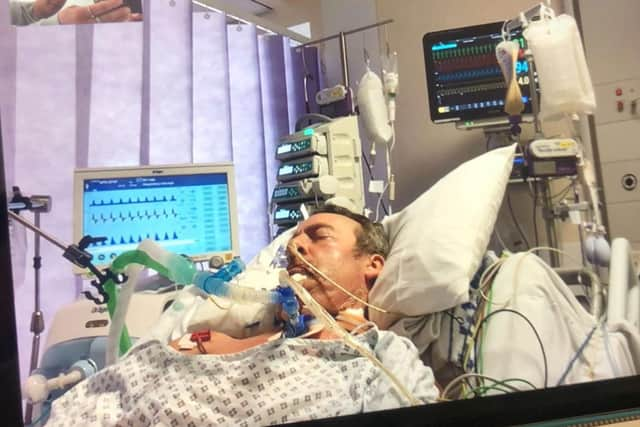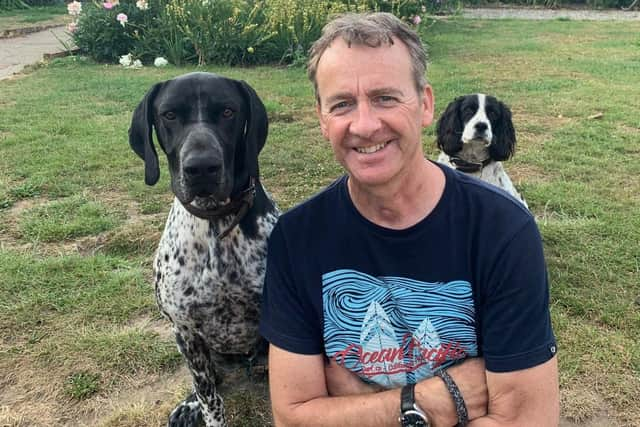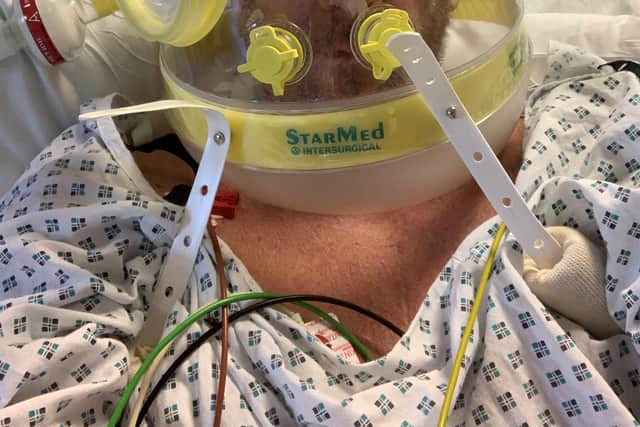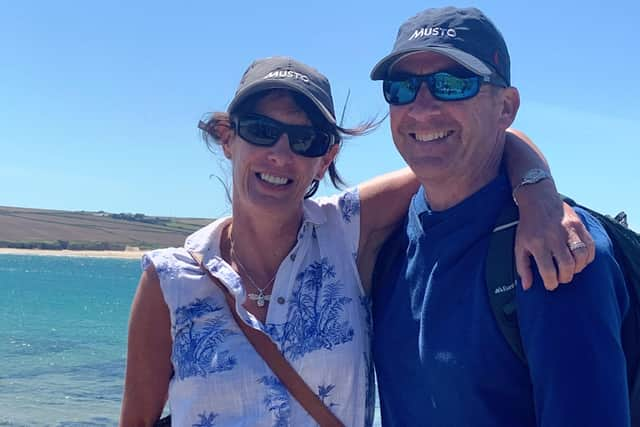High Sheriff of West Sussex talks to a recovering Covid-19 patient about the impacts of the disease
and live on Freeview channel 276
He is grateful to Laurence Penn for being so open about his experience and, as a doctor who has been working on the frontline in response to the coronavirus, Dr Fooks says the take home message is quite important.
In the first week of March this year, Laurence, a healthy 50-year-old West Sussex businessman, travelled to his office in Sutton for a meeting with a colleague. Unfortunately, his associate was so unwell with a fever and cough that, after 30 minutes, he was sent home.
Advertisement
Hide AdAdvertisement
Hide AdThree weeks later, Laurence was on a ventilator fighting for his life.


The reason why the Covid-19 virus causes some people to become so unwell is not fully understood. We know that the elderly and those with chronic medical conditions are at a significantly increased risk but Laurence had no obvious risk factors and it is still not clear why this virus was to prove, for him, very dangerous indeed.
Two weeks after the meeting, Laurence felt unwell. Three days later, he had a fever, loss of appetite, breathlessness and a hacking, debilitating, dry cough. His condition worsened and, a week later, he was so breathless that his wife Martine called an ambulance.
Laurence was rapidly transported to Worthing Hospital and given high dose oxygen via a helmet ventilation system. However, on March 31, the doctors had no choice but to place him into an induced coma and ventilate him.
Advertisement
Hide AdAdvertisement
Hide AdFor the next month, Laurence’s life hang in the balance. He required the insertion of a ventilator tube directly into his trachea and, every day, he had to be turned on to his front to aid his breathing. Throughout this time, Martine and their two daughters were not able to visit him and had to rely on a daily call from the consultant.


The news was often complicated and very frightening.
However, due to the outstanding care of the whole hospital team, and helped by Laurence’s reserves of physical fitness, his lungs recovered so that the ventilator could be removed on April 30. Five days later, he was back on a normal ward and a week later he was home. The journey of rehabilitation then began in earnest.
Laurence had lost 14.5kg (more than 2 stone) during his time in hospital. His vocal cords were damaged so that he could hardly speak and his heart raced with the slightest exercise.
However, with grit and determination, some excellent support from the physiotherapist, the speech therapist, the dietician and the community nurses, Laurence improved dramatically.


Advertisement
Hide AdAdvertisement
Hide AdNow, four months on, he says he is 95 per cent back to normal. He still cannot sing but he has regained his strength. His wife and family are thrilled and, for them all, there has been an opportunity to remember what really makes life important.
Meanwhile, over the past six months, our hospitals have learned a great deal about the best management of severe Covid-19, with the use of steroids now known to improve the survival rate of those requiring ventilation.
Unfortunately, however, an effective vaccine remains some months away and we are now moving into a second wave of this infection. Consequently, the government have tightened social restrictions and introduced new legislation to try, as much as possible, to keep the infection under control.
Some may wonder why these steps are necessary since the great majority of people, especially the young, rarely experience anything more than mild symptoms. But a study in Oxford suggests that roughly 40 per cent of Covid-19 transmission events occurred before the onset of symptoms, and around 35 per cent took place on the day that symptoms appeared, or on the following day. And, as Laurence’s case has reminded us, it is difficult to predict just which of these new cases will go on to develop severe disease.


Advertisement
Hide AdAdvertisement
Hide AdWhile this uncertainty remains, it is therefore in everybody’s interest to take care to minimise the risk of spreading the virus to other people – one of them just might be another Laurence.
[I am deeply grateful to Laurence and Martine Penn for sharing their story and to all those who have helped Laurence to survive and recover.]
A message from the Editor, Gary Shipton:
In order for us to continue to provide high quality and trusted local news, I am asking you to please purchase a copy of our newspapers.
With the coronavirus lockdown having a major impact on many of our local valued advertisers - and consequently the advertising that we receive - we are more reliant than ever on you helping us to provide you with news and information by buying a copy of our newspapers.
Advertisement
Hide AdAdvertisement
Hide AdOur journalists are highly trained and our content is independently regulated by IPSO to some of the most rigorous standards in the world. But being your eyes and ears comes at a price. So we need your support more than ever to buy our newspapers during this crisis.
Stay safe, and best wishes.